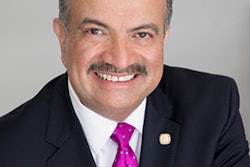College boards should make sure their institutions’ presidents are available to talk to students who want to voice concerns about campus culture and issues of free speech, a new report issued by the Association of Governing Boards of Universities and Colleges states.
Presidents should also initiate communication with such students, according to the report, titled “Freedom of Speech on Campus: Guidelines for Governing Boards and Institutional Leaders.”
“Setting campus tone and culture starts at the top,” the report states. “Open conversation between presidents and those students who are committed to airing alternative opinions can go a long way in establishing trust and respect for institutional policy, even when consensus may be difficult to achieve.”
It also urges boards to “respect and champion the process of engagement by their president with students and other stakeholders who feel at risk because of campus speech policy and its application (or non-application) in particular situations.”
The AGB report is published at a “volatile” time for college campuses throughout the United States. Indeed, colleges and universities are struggling to strike the proper balance between ensuring free speech on the one hand and maintaining a civil and inclusive environment on the other.
There’s no shortage of examples in which disagreements over who should be allowed to speak on campus have resulted in protests and physicality — from arrests of protesters recently at the University of California Berkeley during a protest of conservative commentator Ben Shapiro—to the shouting down and pushing and shoving of controversial author Charles Murray and a faculty member who was interviewing him at Middlebury College last spring.
Several colleges have also recently canceled or disallowed appearances by White nationalist Richard Spencer, citing the violence that erupted at a White nationalist rally he was involved with in Charlottesville in August.















